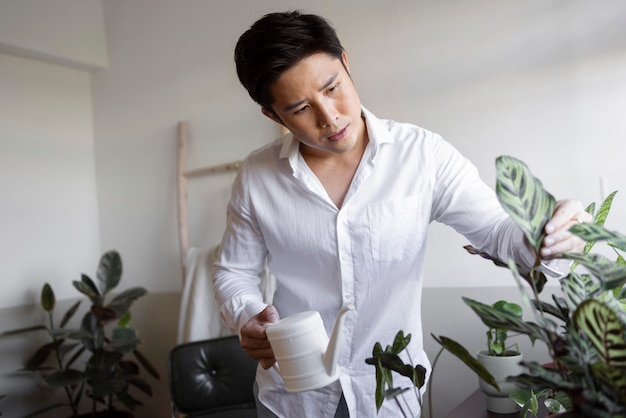
Cramps during or just before your period are pretty common, but some women experience cramps even after their period ends. While this might sometimes be normal, it can also signal an underlying health issue. Understanding the causes of cramps after your period can help you know whether it’s time to visit the doctor or if there’s no serious need for concern.
If your cramps last a few hours or even up to a day or two after your period, it’s typically nothing to worry about. However, if the pain sticks around for several days, it’s best to seek medical advice right away. A gynecologist can help determine the cause and recommend the right treatment.
### Reasons You Might Have Cramps After Your Period
1. **Appendicitis**
Cramps that persist for months and occur even outside of your period might be caused by appendicitis. This condition typically begins with pain around the belly button that shifts to the right side of your abdomen and becomes increasingly severe. Other symptoms may include nausea, vomiting, constipation, diarrhea, and appetite loss. It’s important to treat appendicitis promptly, as leaving it untreated can lead to a burst appendix.
2. **Implantation**
If you notice mild cramping shortly after your period, it could be due to implantation—a sign of early pregnancy. This happens when a fertilized egg attaches to the uterine lining, typically 6 to 12 days after conception. The pain is usually mild compared to menstrual cramps and lasts no more than two days. Other possible signs include breast changes, nausea, or a white, milky discharge. Many women mistake implantation cramps for menstrual pain, but the two are not the same.
3. **Ovulation**
Cramping about two weeks after your period could mean you’re ovulating. Ovulation occurs when an egg is released and can be accompanied by light spotting, vaginal discharge, and mild to severe abdominal pain. This is a natural part of your cycle and generally isn’t a cause for concern.
4. **Pelvic Inflammatory Disease (PID)**
PID is a serious infection, often the result of sexually transmitted bacteria, that affects the reproductive organs and can cause pain in your pelvis or lower abdomen. Symptoms include severe cramps after your period, unusual vaginal discharge with a fishy smell, and dark, thick menstrual blood. If untreated, PID can lead to infertility or other serious complications.
5. **Stress**
High stress levels can disrupt your hormonal balance, leading to abdominal cramps even after your period has ended. Stress might also cause irregular spotting or bleeding between periods. Sometimes, you may notice thicker vaginal discharge during these episodes. Managing stress with relaxation techniques can help ease these symptoms.
6. **Cervical Stenosis**
Some women have a narrow cervical opening, known as cervical stenosis. This can put pressure on the uterus, causing cramps even after your period ends. In mild cases, medication may help, but surgery or other medical interventions might be required if the condition persists.
7. **Uterine Fibroids**
Uterine fibroids are non-cancerous growths in the uterus that can disrupt normal blood flow and cause prolonged pain after your period. They may also lead to heavy, irregular periods, pelvic pain, difficulty urinating, and constipation. Fibroids can often be managed with medication, but surgery may be necessary in more severe cases. If left untreated, they can even lead to infertility.
### Treatment for Cramps After Your Period
When cramps persist, a gynecologist will perform a physical exam and recommend treatments based on the underlying cause. Common treatments include:
– **Pain relief:** Doctors often prescribe painkillers or anti-inflammatory medications for immediate relief.
– **Surgery:** If cysts or fluid sacs are the cause of your pain, surgical treatment may be necessary to prevent complications down the road.
– **Hormonal therapy:** Hormone-regulating medications may be recommended if the cramps are due to hormonal imbalances.
– **Cancer treatment:** If cervical cancer is involved, treatments may include surgery, chemotherapy, or medication.
### Natural Remedies to Ease Cramps After Your Period
If you’re dealing with mild or occasional cramps, home remedies can provide effective relief:
– **Heat Therapy**
A warm compress or heating pad placed on your lower abdomen can soothe cramps caused by factors like ovulation, implantation, or fibroids. You can make a DIY heat pad using a hot water bottle wrapped in a towel.
– **Exercise**
Regular exercise can help strengthen your body and reduce the intensity of cramps. Targeted abdominal exercises can be particularly beneficial. Women who exercise regularly often experience less period-related pain.
– **Meditation**
Meditation helps manage stress and alleviate both mental and physical tension. Practicing meditation daily can gradually reduce the frequency and intensity of post-period cramps.
– **Stay Hydrated**
Dehydration may worsen cramps, so be sure to drink plenty of water throughout the day. Staying hydrated improves your overall body function and energy levels, which can help ease abdominal pain.
– **Massage**
A gentle massage on the painful area can temporarily relieve cramping.
– **Dietary Changes**
Incorporate more fruits, vegetables, and whole foods into your meals, while avoiding processed or junk foods. A nutritious diet can improve your overall health and prevent cramps.
– **Avoid Tobacco and Alcohol**
Smoking and heavy alcohol consumption can worsen cramping and negatively impact your health. Reducing or eliminating these habits can provide long-term relief.
### When to See a Doctor
While occasional cramps after your period are often harmless, frequent or severe pain that lasts several days should not be ignored. A gynecologist can determine the root cause and recommend the right treatment to help you feel better.